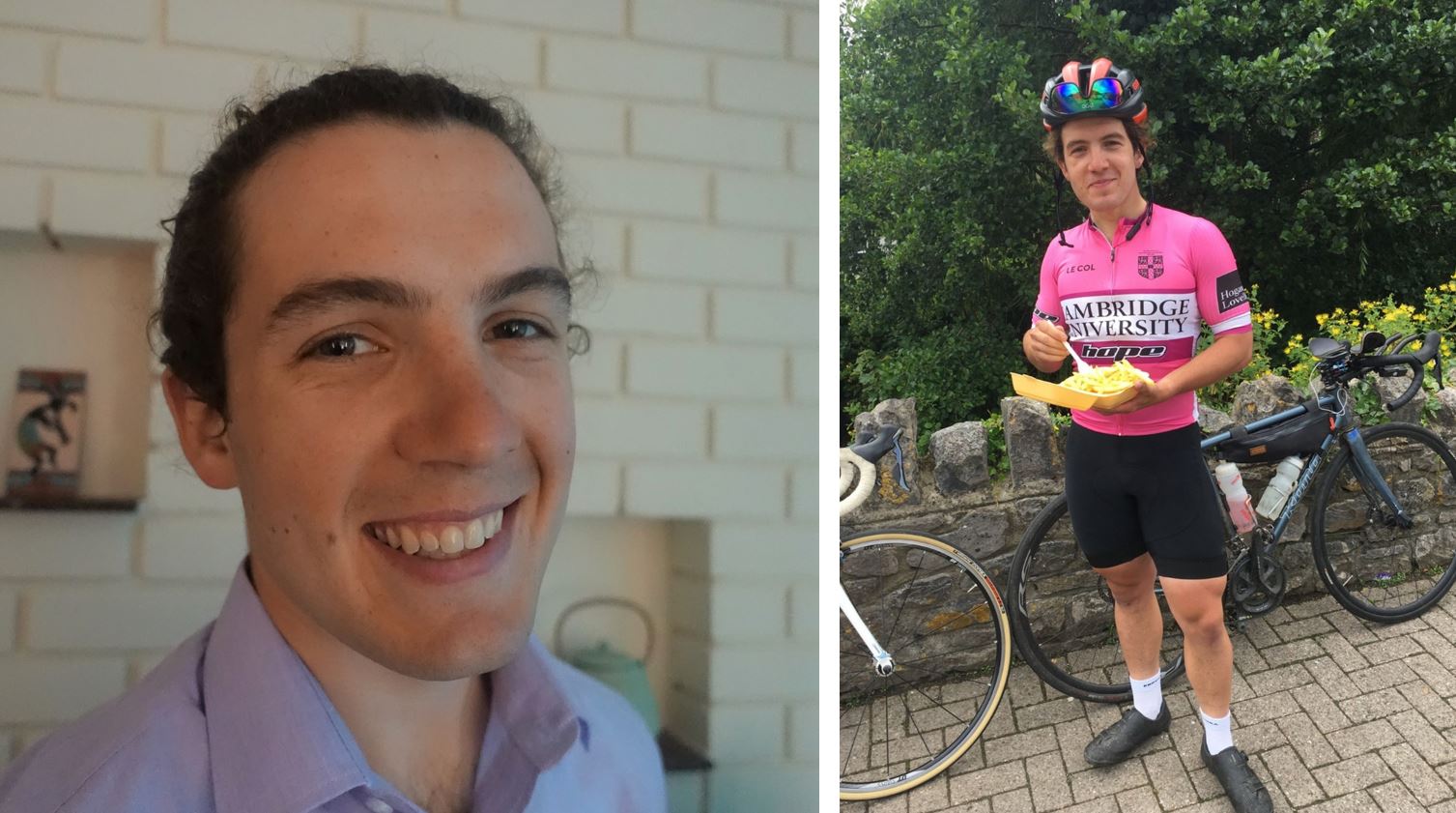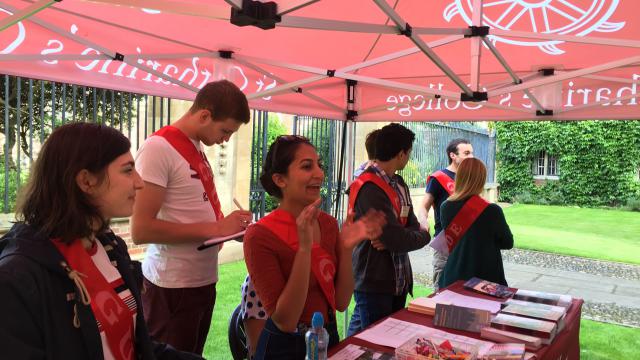Name: Timothy Welsh
Hometown: Seattle, Washington, USA
Extracurricular interests: Long distance cycling
Postgraduate degree: PhD in biophysical chemistry
Life before Catz
“When I was looking at what to do after my undergraduate degree at the University of Washington, a professor recommended that I should apply to a postgraduate degree at Cambridge. I looked at the different research laboratories across the University and identified that Professor Tuomas Knowles was accepting MPhil students to help investigate protein assembly and protein design using microfluidics. Fortunately, the lab environment, supervisor and colleagues were great. To make the most of the same research atmosphere and freedom offered by Cambridge, I applied to continue my studies at PhD level.”
Life at Catz
“Everyone seems pretty friendly at Catz and I’ve been able to settle in by attending events organised for postgraduates twice a month. Despite its proud history, I’ve found Catz to be far less traditional than some of the other long-standing Colleges in Cambridge. For example, I’ve really enjoyed dinners in Hall (known as ‘formals’) where postgraduates and Fellows interact much more than I’d expected. In addition, the Members’ Common Room organises a calendar of intellectually-stimulating research seminars to explore everyone’s special interests (from medieval languages to geology) by bringing together postgraduates and Fellows across all subject areas.”
Postgraduate studies
“I’m looking at how proteins assemble in higher order structures, particularly liquid condensates in cells. This is a process called liquid-liquid phase separation which is thought to be involved in disease mechanisms, such as ALS. Understanding the molecular causes of disease and how these relate to the disease will be important for developing treatment strategies in the future.”
The Harding Distinguished Postgraduate Scholars Programme
“One of the biggest benefits of being a Harding Distinguished Postgraduate Scholar is the freedom: I am free to pursue my research without any obligations to a funding body, while the generous research allowance gives me the freedom to visit other labs around the world and go to conferences. I’m one of six committee members who supports the Scholars by organising social events and opportunities to develop leadership and other skills.”
Advice for undergraduates thinking of applying for postgraduate studies
“From the perspective of a research-heavy, lab-based subject, I’d definitely recommend putting in the time to research the group you want to join. Try to visit the lab if you can or at least ask for video calls – not just with the professors, but also PhD students so you can gauge the environment and support available. For Cambridge science undergraduates, the Part III project can help confirm your love of your subject and whether you’ll enjoy life in the lab. If you only have a few years to complete your PhD, it’s important to fit in and hit the ground running.”






